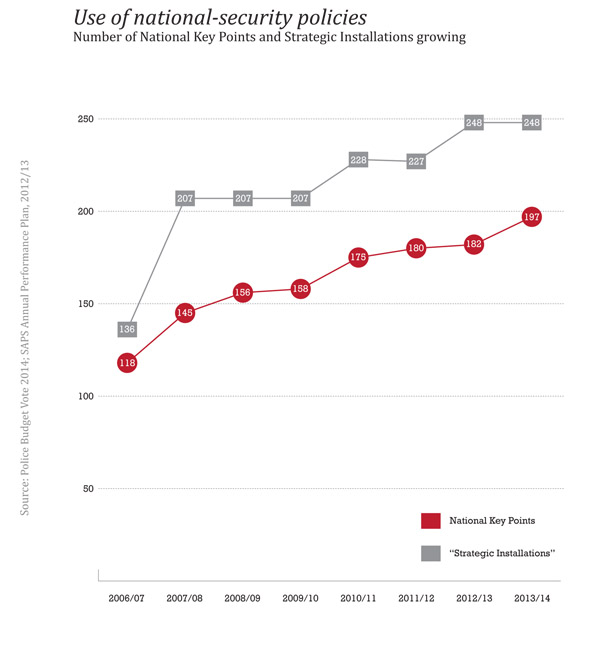FACTSHEET: What you need to know about Strategic Installations

As we’ve stated elsewhere, National Key Points are just one category of secret ‘security’ sites. There is another category of sites out there called Strategic Installations – about 250 of them. Though we don’t know where or what they are, we believe these are mostly national and provincial government buildings.
At R2K’s behest, the South African History Archive (SAHA) has submitted a PAIA request to the police for a list of these Strategic Installations.
But what are Strategic Installations? Little is known about them except that they are sites that are given similar protections and functions to NKPs.
It would appear that they are the result of a security policy adopted by SAPS without any law to underpin it. In 2007, the Ministry of Safety and Security (now Police) released a draft bill to amend the National Key Points Act. That Bill defined “National Key Points” as privately owned sites and “Strategic Installations” as publically owned sites.
However, that draft Bill was never passed. In fact, it came under such severe criticism by Cosatu, the Freedom of Expression Institute and other allies that the Ministry quietly shelved the Bill entirely.
However, it would seem that SAPS has been implementing that draft Bill anyway. According to SAPS documents, the number of Strategic Installations rose from 118 in 2006/7 (the first year for which data is available) to 248 in the last year. (We reported this in the 2014 Secret State of the Nation report, available here.)
When R2K requested clarity on how Strategic Installations were defined, SAPS officials suggested that strategic installations may include provincial or national government departments. From a SAPS letter:
 Read the full letter here.
Read the full letter here.
This may explain why the NKP list is, as many have noted, devoid of government and military sites.
Given the abuses we have seen with NKPs, a separate set of sites with vague national-security protections is worrying. Strategic Installations appear to be another secret policy not subject to public oversight.
#Ends


